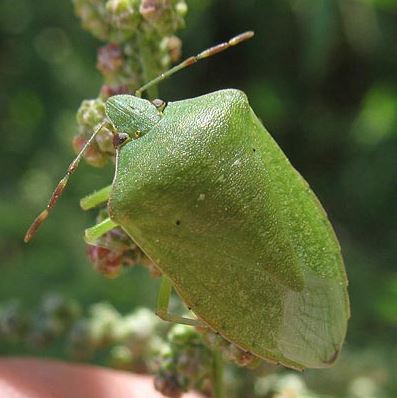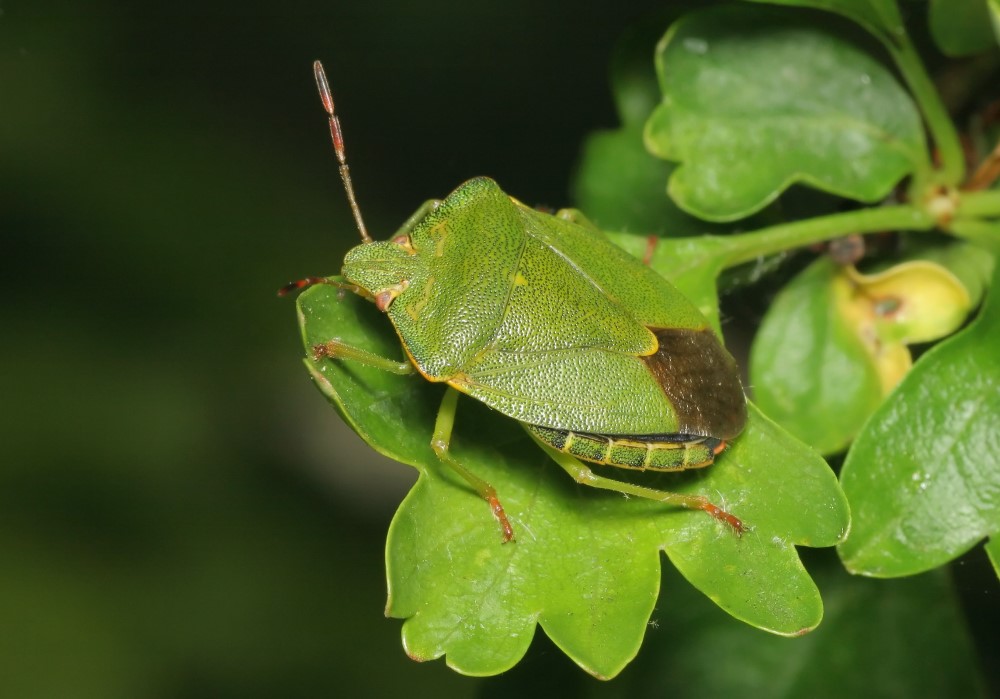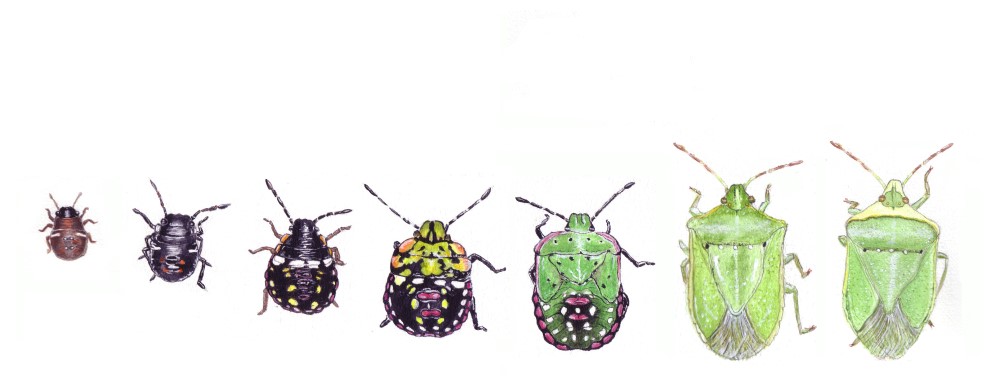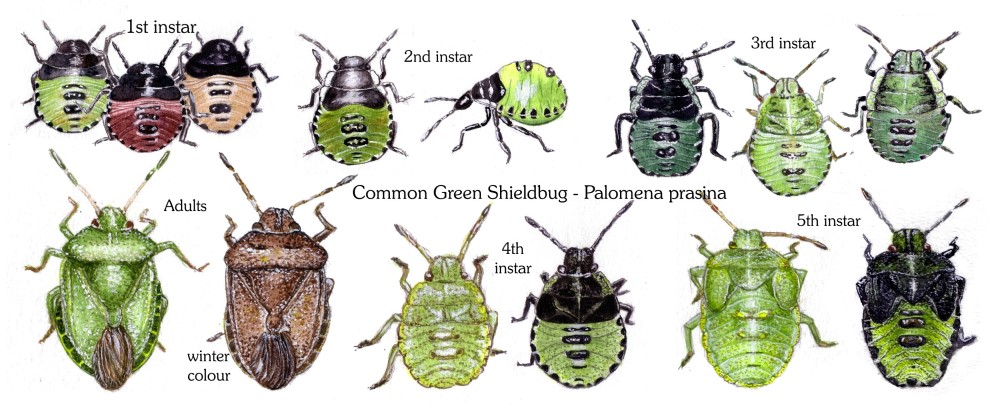Please click here to access the main AHDB website and other sectors.
- Home
- Knowledge library
- Southern green shieldbug: how to distinguish between species
Southern green shieldbug: how to distinguish between species
The differences between shieldbug species can be subtle. Here is how to tell them apart.
Back to: Southern green shieldbug
Southern versus common shieldbug
It is important to be able to distinguish between the southern green shieldbug and the more widely distributed native common green shieldbug (Palomena prasina).
The latter often strays into glasshouses during the summer but does not cause economic damage.
As a result, control measures may be needed for the southern green shieldbug, but not its less destructive relative.
Spotting the differences
The adult southern green shieldbug differs from Palomena prasina by the three to five white spots and two black spots across its ‘back’.
Adult southern green shieldbug (Nezara viridula)

Image © Steve Gill.
Adult common green shieldbug (Palomena prasina)

Image © Tristan Bantock.
Also, the exposed wing membrane at the rear of the insect is pale in southern green shieldbug but darker in the common green shieldbug.
Based on what is known about the southern green shieldbug elsewhere, it is likely that overwintered adults emerge within glasshouses in early spring and soon begin to produce eggs.
Life cycle
It is likely that the southern green shieldbug overwinter as adults and emerge in early spring and soon begin to produce eggs. Their life cycle is relatively long and there are probably two to three overlapping generations during the pepper and aubergine growing season.
Southern green shieldbug (Nezara viridula) life cycle stages

Image © Ashley Wood.
Common green shieldbug (Palomena prasina) life cycle stages

Image © Ashley Wood.
However, Palomena prasina has only one generation per year. The adults are bright green in spring and summer but become brown prior to winter hibernation.
The instars feed on deciduous trees and shrubs from June to October and do not fly, so they are less likely than adults to be found straying into glasshouses.
The instars take many different forms, which can be confusing when trying to distinguish them from southern green shieldbug.
Useful links
Southern green shieldbug: life cycle
Southern green shieldbug: crop damage
Read our Protected Edibles Crop Walkers’ Guide
Author
The content on this page was authored for AHDB by Dr Rob Jacobson (Rob Jacobson Consultancy Ltd).

